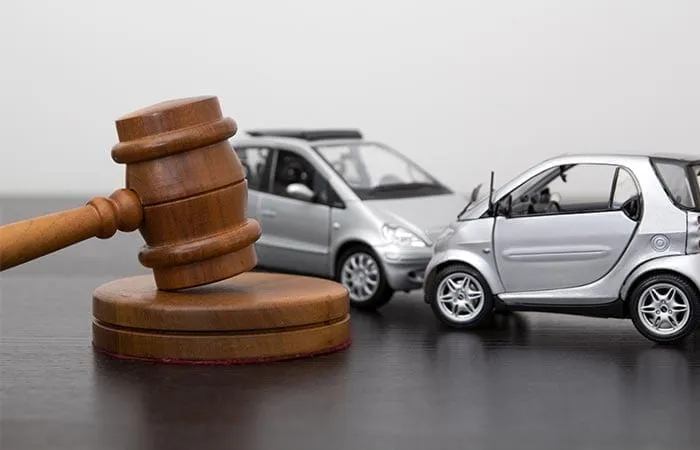Your Car Wreck Case Timeline: What Attorneys Want You to Know
- account_circle admin
- calendar_month Sen, 1 Sep 2025
- visibility 197
- comment 0 komentar

Your Car Wreck Case Timeline
Your Car Wreck Case Timeline: What Attorneys Want You to Know
KlikBabel.com – Your Car Wreck Case Timeline: What Attorneys Want You to Know. Being involved in a car wreck is a jarring, often traumatic experience. Beyond the immediate physical and emotional toll, navigating the legal aftermath can feel overwhelming. Many victims wonder, “What happens next? How long will this take?” Understanding the car wreck case timeline isn’t just about managing expectations; it’s about empowering yourself to make informed decisions. Attorneys specializing in personal injury want you to know the critical stages and your role in ensuring a successful outcome.
This article outlines the typical timeline of a car accident claim, from the moment of impact to the final resolution, offering insights into what your legal counsel will emphasize at each step.

Your Car Wreck Case Timeline
1. The Immediate Aftermath: Crucial First Steps (Day 0-7)
The moments directly following an accident are critical for your health and the strength of any future claim.
- At the Scene: Your primary concern should be safety. Call 911 for police and medical assistance. Document everything: take photos/videos of vehicle damage, the accident scene, road conditions, and any visible injuries. Exchange information with other drivers (name, insurance, license, contact). Collect witness contact details.
- What Attorneys Want You to Know: Never admit fault, even if you think you might be. Anything you say can be used against you. Your immediate actions lay the groundwork for evidence.
- Seek Medical Attention: Even if you feel fine, see a doctor within 24-48 hours. Adrenaline can mask pain, and some injuries (like whiplash or concussions) have delayed symptoms.
- What Attorneys Want You to Know: Medical records are paramount. Gaps in treatment or delayed care can severely weaken your claim, as insurance companies may argue your injuries weren’t caused by the accident. Consistent documentation of your injuries and treatment is vital.
- Report to Your Insurance: Notify your own insurance company promptly. You are typically required to do so by your policy.
- What Attorneys Want You to Know: Be factual and avoid speculation. Do not give a recorded statement to the other driver’s insurance company without consulting your attorney first.
2. Contacting an Attorney: Your First Legal Move (Day 1-14)
While you’re recovering, one of the most important decisions you’ll make is retaining legal counsel.
- Initial Consultation: Most personal injury attorneys offer a free, no-obligation consultation. They will review the facts of your case, explain your rights, and outline potential legal strategies.
- What Attorneys Want You to Know: The sooner, the better. Early legal intervention protects evidence, ensures proper communication with insurance companies, and helps you avoid costly mistakes. An attorney can immediately take over all communications, allowing you to focus on recovery.
- Signing a Retainer Agreement: If you decide to proceed, you’ll sign an agreement outlining the attorney’s fees (typically a contingency fee, meaning they only get paid if you win).
- What Attorneys Want You to Know: Understand the fee structure and ask questions. A good attorney will be transparent about costs.
3. The Investigation & Evidence Gathering Phase (Weeks 2 – Months 3-6)
Once retained, your attorney will launch a comprehensive investigation.
- Collecting Documentation: This includes police reports, medical records and bills, employment records (for lost wages), witness statements, traffic camera footage, and accident reconstruction reports.
- Expert Consultation: If liability is contested or injuries are severe, your attorney may consult with accident reconstructionists, medical experts, or economic specialists.
- What Attorneys Want You to Know: Be responsive and organized. Provide all requested documents promptly. Keep detailed records of your medical appointments, pain levels, and how the injury impacts your daily life. This phase requires patience as obtaining records can take time.
4. Medical Treatment & Reaching Maximum Medical Improvement (MMI) (Months 3 – 12+)
Your physical recovery is central to your case’s value.
- Consistent Treatment: Follow your doctor’s orders diligently. Attend all appointments, take prescribed medications, and complete any physical therapy.
- Maximum Medical Improvement (MMI): This is the point where your condition has stabilized, and further medical treatment is unlikely to improve it. You may still have residual pain or limitations.
- What Attorneys Want You to Know: Do not stop treatment prematurely. Reaching MMI is a crucial benchmark because it allows your attorney to fully assess the extent of your permanent injuries, future medical needs, and overall damages. Valuing a claim before MMI is difficult and often leads to undervaluation.
5. Drafting and Sending the Demand Letter (After MMI is Reached)
Once MMI is achieved and all evidence gathered, your attorney will prepare a comprehensive demand letter.
- The Demand Package: This detailed document outlines the facts of the accident, establishes liability, summarizes your injuries and medical treatment, calculates all damages (medical bills, lost wages, pain and suffering, property damage), and presents a settlement demand to the at-fault driver’s insurance company.
- What Attorneys Want You to Know: This is a meticulously crafted document. It’s your formal presentation of the case and its value. Your input on your pain, suffering, and daily limitations is essential for this part.
6. Negotiation Attempts (Weeks 2 – Months 2 after Demand)
Following the demand letter, negotiations begin with the insurance company.
- Offers and Counter-Offers: The insurance company will typically respond with a lower offer or a denial of liability. Your attorney will negotiate on your behalf, presenting counter-offers and arguments to support your claim’s value.
- What Attorneys Want You to Know: Be patient and realistic. Insurance companies aim to settle for the lowest possible amount. Your attorney’s experience is crucial here to recognize fair offers and push back effectively. Most cases settle during this phase.
7. Filing a Lawsuit: When Negotiations Fail (If Necessary, Before Statute of Limitations)
If negotiations stall or the insurance company’s offer is insufficient, your attorney may recommend filing a lawsuit. This does not necessarily mean going to trial.
- Preserving Your Rights: Filing a lawsuit ensures you don’t miss the “statute of limitations” – the legal deadline for filing a claim.
- Formal Complaint: Your attorney will file a formal complaint with the court, initiating litigation.
- What Attorneys Want You To Know: This is a strategic step. Sometimes, filing a lawsuit prompts insurance companies to take the case more seriously, leading to more reasonable settlement offers.
8. The Discovery Phase (Months 6 – 18+ After Lawsuit Filed)
Once a lawsuit is filed, both sides engage in “discovery,” exchanging information to prepare for trial.
- Interrogatories: Written questions you must answer under oath.
- Requests for Production: Requests for documents, such as medical records or financial statements.
- Depositions: Out-of-court sworn testimony taken from you, witnesses, and experts.
- What Attorneys Want You to Know: Your cooperation is vital. Be honest, thorough, and prepared. Your attorney will guide you through this process, preparing you for depositions and ensuring accurate responses.
9. Mediation or Arbitration (Often Pre-Trial)
Before trial, many courts mandate or encourage alternative dispute resolution.
- Mediation: A neutral third party facilitates discussions between both sides to help them reach a mutually agreeable settlement. The mediator does not make a decision.
- Arbitration: A neutral third party hears arguments and evidence from both sides and then makes a binding or non-binding decision.
- What Attorneys Want You to Know: These are often effective tools for settlement. They provide another opportunity to resolve the case without the expense and uncertainty of a trial.
10. Trial (If No Settlement is Reached – Rare)
Only a small percentage of car accident cases go to trial.
- Court Proceedings: This involves jury selection, opening statements, presentation of evidence (witness testimony, expert testimony, documents), closing arguments, and ultimately, a jury verdict.
11. Settlement or Verdict & Payout (After Resolution)
Once a settlement is reached or a verdict is delivered, the final stage is the payout.
- Fund Disbursement: Your attorney will collect the settlement or award, pay off any medical liens (e.g., from health insurance or medical providers), deduct their fees and case expenses, and then disburse the remaining funds to you.
- What Attorneys Want You to Know: Understanding the final distribution is key. Your attorney will provide a detailed breakdown of all deductions.
The car wreck case timeline can be lengthy and complex, often spanning many months or even years. However, by understanding these stages and working closely with an experienced personal injury attorney, you can navigate the process with confidence, allowing you to focus on your recovery while your legal rights are vigorously protected. Don’t hesitate to seek legal counsel promptly after an accident to ensure the best possible outcome for your claim.
FAQ
1. How long does a car accident case typically take?
The timeline varies significantly based on factors like the severity of injuries, complexity of liability, amount of evidence, and willingness of parties to negotiate. Simple cases with minor injuries might settle in a few months, while complex cases involving severe injuries or litigation can take 1-3 years, or even longer if they go to trial.
2. What if I can’t afford a car accident attorney?
Most personal injury attorneys work on a contingency fee basis. This means you don’t pay any upfront fees. Instead, their payment is a percentage of the final settlement or verdict you receive. If they don’t win your case, you generally don’t owe them attorney fees. This arrangement makes quality legal representation accessible to everyone.
3. What is the most important thing I can do to help my car accident case?
The most critical thing you can do is seek immediate and consistent medical attention for your injuries, and follow your doctor’s recommendations precisely. Comprehensive medical documentation directly links your injuries to the accident and substantiates the extent of your damages, forming the backbone of your claim. Secondarily, hiring an attorney early ensures all other critical steps are handled correctly.
- Penulis: admin












Saat ini belum ada komentar